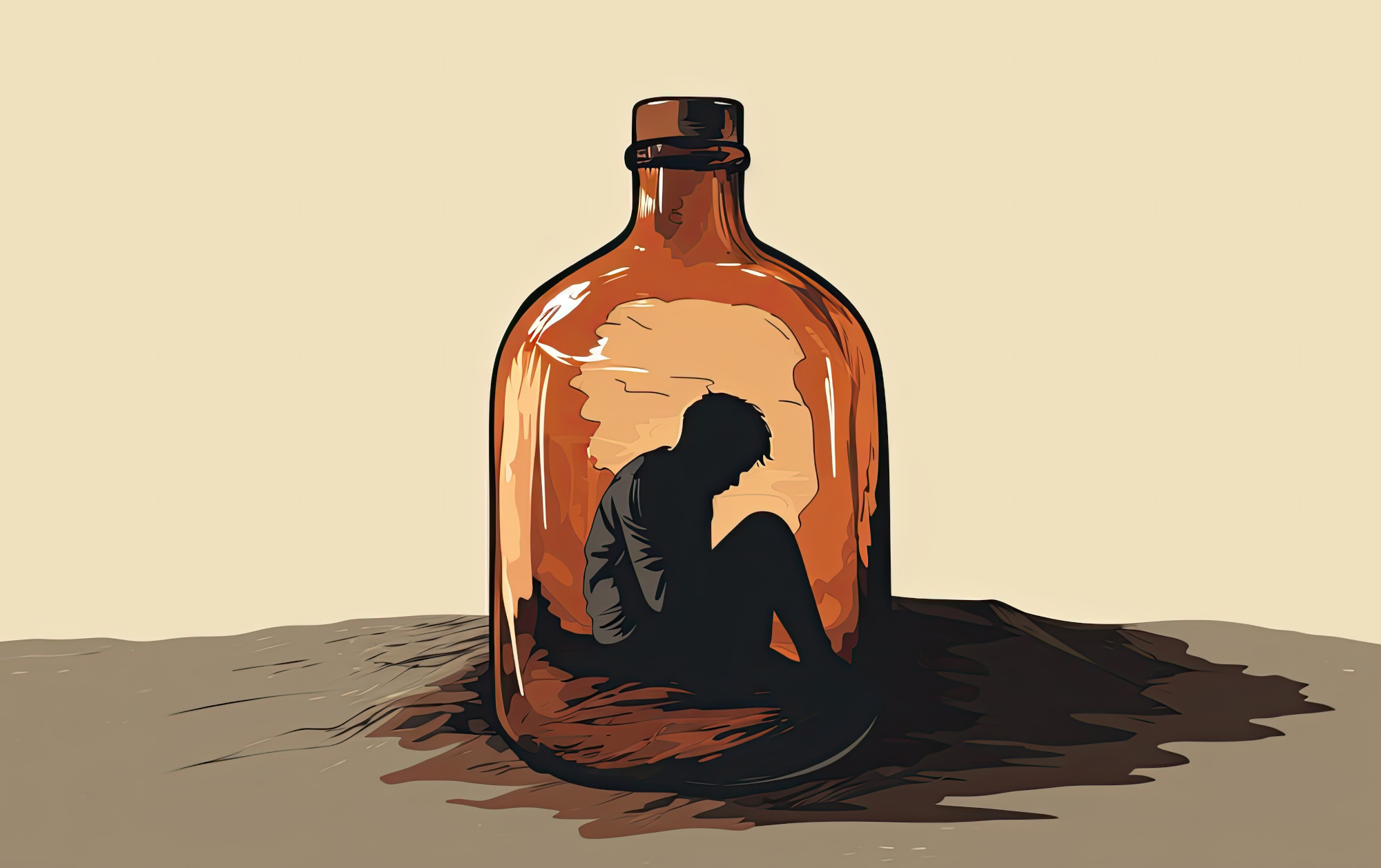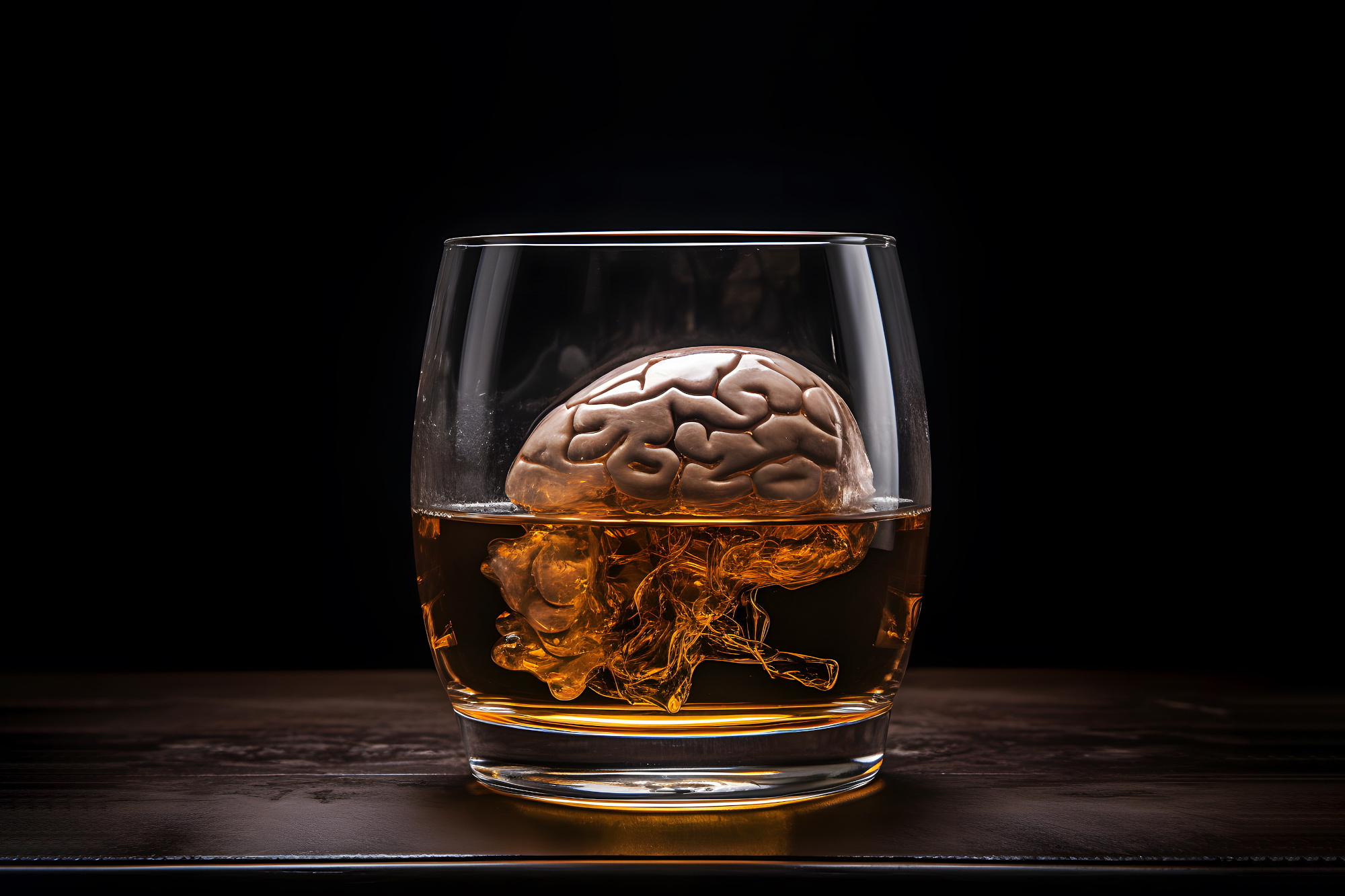Are you drinking too much and can’t seem to stop?
It may feel like alcohol is harmless—after all, it’s widely consumed in social settings and used to decompress or unwind. But alcohol has some serious side effects, including dependence, that can wreak havoc on a person’s life and make it difficult to stop.
So, is alcohol addictive? The short answer is yes, alcohol can be a highly addictive substance, but many people don’t know why. In this post, we are going to take a deep dive into the risk factors for alcohol dependence and what determines its addictiveness.
Risk Factors for Alcohol Addiction
A combination of nature and nurture can contribute to alcohol addiction, along with several other factors. Understanding these factors can help you or your loved one determine if you’re at risk of developing an alcohol addiction—and seek appropriate help.
Genetics
Do a lot of your childhood memories involve your parents drinking? Do other members of your family drink heavily? Genetics can play a role in the likelihood of developing an alcohol addiction. If you have a family history of alcohol dependence, then your risk of developing an addiction increases significantly. It also might be worth looking into your family history. There are specific genetic markers that can make some people more susceptible to alcohol addiction. Understanding your family’s history may be able to shed some light on a possible link to alcohol addiction.
Environment
The environment you surround yourself in can significantly impact you, from your daily habits to who you hang out with to your stress level and mood. Your environment can also influence your relationship with alcohol. For example, having a friend group or a spouse that encourages drinking can put you at risk of developing an alcohol addiction. There are also other environmental factors, such as going through a stressful life event like job loss, divorce, or a recent death in the family. These environmental stressors can significantly impact your relationship with alcohol.
Psychological Factors
If you suffer from common mental health disorders like depression, anxiety, or bipolar disorder, it can play a part in your alcohol dependence. If you find yourself reaching for a drink when you feel depressed or in times of psychological distress, you’re not alone. Many people use alcohol as a coping mechanism when dealing with a sad or hard moment in their life, but this can lead to a dependence on it.
Age of First Use
Did you have your first drink at a young age? Experimenting with alcohol as a child or teenager may seem harmless at first, but it can affect your relationship with alcohol later on in life. Studies have shown that people who consume alcohol at a younger age are more likely to develop an alcohol dependence.
Frequency and Quantity of Consumption
Frequent, heavy drinking can lead to a physical and emotional dependence on alcohol. If drinking a lot becomes a habit, your body is going to crave alcohol regularly, which can make it so much harder to quit.

How Addictive is Alcohol?
If you’re having trouble figuring out if you or a loved one is addicted to alcohol, please know that It can look different in each person. Several factors can influence someone’s alcohol dependence.
Tolerance
If you are finding that you need to drink more and more to feel the same effect, then you may have a very high tolerance to alcohol. At first, this may not seem like a big deal, but having a high tolerance can increase the amount of drinks you consume in each sitting. Ordering drink after drink regularly can lead to alcohol dependence.
Dependence
If you find yourself drinking a lot, you may have a dependence on it, which can make quitting feel so much harder to do, both on a physical and emotional level. Having a dependence can cause you to experience withdrawal symptoms when you stop drinking or drink less. Withdrawal symptoms can feel like tremors, anxiety, and nausea. Experiencing these uncomfortable symptoms can drive you to drink again and again.
Brain Chemistry
Did you know that brain chemistry can influence your relationship with alcohol? When you drink alcohol, it releases dopamine, a neurotransmitter in your brain associated with pleasure, which can trick your brain into thinking that alcohol is responsible for your fun night out. This association can cause your brain to crave alcohol and can make you want to drink more and more.
Behavioral Patterns
If you tend to have a drink after work or drink or every time you socialize with your friends, then alcohol may have become ingrained into your routine. Keep an eye on your daily and weekly patterns and see if they revolve around alcohol.
Seeking Help in Southern California
Recognizing the signs of alcohol addiction is the first step on the road to recovery. If you or a loved one need to seek help, SCRC offers top-tier alcohol treatment in Southern California. Here, we provide compassionate and comprehensive care for those struggling with alcohol addiction.
Alcohol Treatment in Southern California
Our world-class alcohol treatment in Southern California offers a range of services to help individuals overcome alcohol addiction, from our detox programs to inpatient and outpatient care to sober living facilities that can help you transition back to your daily life in a supportive environment. SCRC can provide a holistic and personalized approach to empower you or your loved ones to get the help and care you need.
Personalized Treatment Plans
Our alcohol treatment varies from person to person and addresses each specific factor that can lead to an individual’s alcohol addiction. At SCRC, we use evidence-based approaches to help people on the path to recovery. When choosing alcohol treatment in Southern California, clients can get the help they need in a beautiful, serene environment where they can embark on their journey. Our staff, trained with expertise and compassionate care, is dedicated to understanding and addressing each client’s unique needs.
Financial constraints should never prohibit someone from getting the help they need. We accept various insurance plans and work with clients to determine coverage and create an affordable payment plan.
Holistic Approach
So, is alcohol addictive? Yes, it can certainly be, especially with certain genetic dispositions, environmental factors, and its ability to alter brain chemistry.
Alcohol addiction is a disease, not a personal failing, and with the right care, you can get the help you need to start your recovery journey. Our compassionate staff members are readily available, just a click or phone call away. They can easily walk you through our programs to determine which is right for you. At SCRC, we want everyone to receive the support they need on their road to sobriety.
Sources:
Harvard Health. (2014.) Alcohol Abuse
National Institute on Alcohol Abuse and Alcoholism (2021.) The Cycle of Alcohol Addiction
American Psychological Association. (2012.) Understanding alcohol use disorders and their treatment
Southern California Recovery Centers
Southern California’s Premier Outpatient Addiction Recovery Center



